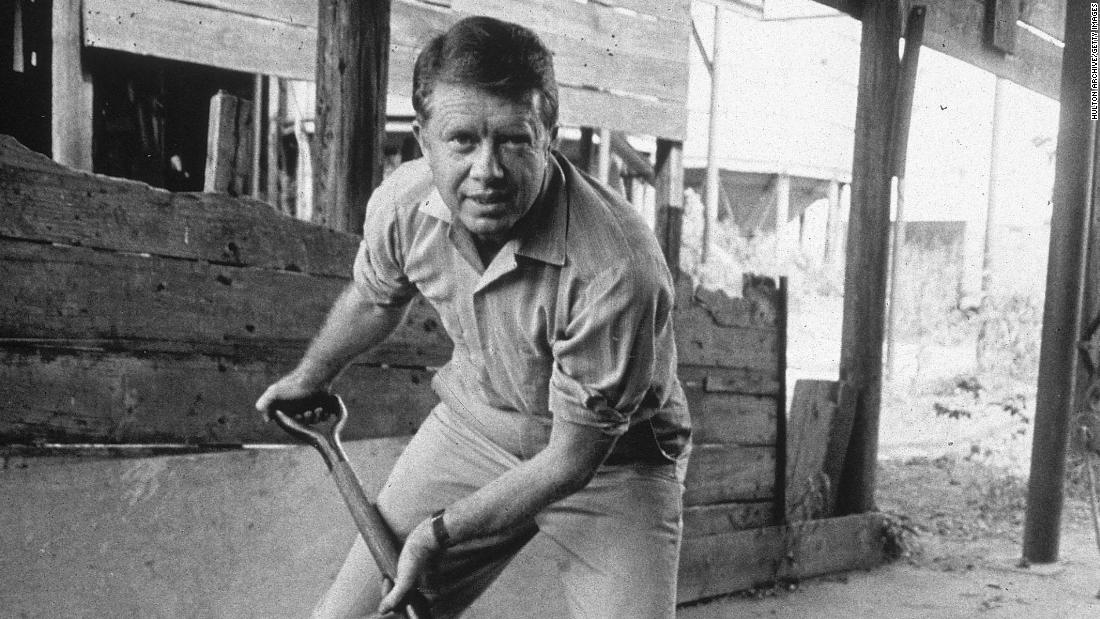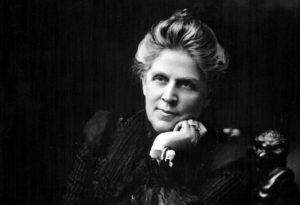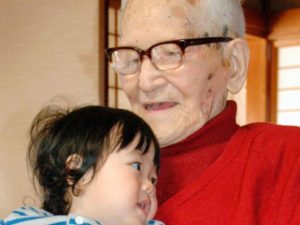Given the nature of farming, it doesn’t typically lead to a life of notoriety. Between milking, feeding and fieldwork, there isn’t much time to become a household name or stay in the public’s eye. Perhaps many farmers wouldn’t want that anyway. Still, for the sake of idle kitchen table talk after the morning milking, who are the most famous farmers you could name?
Time for some disclaimers. It goes without saying that a list made by any one person is going to be influenced by their age, geography, and experiences, leaving it mostly arbitrary. It’s up to the individual to decide how far back into history they want to go, and how generously they define the term “farmer.” You’ll notice that there are only two women in this particular group, which perhaps speaks to the lack of recognition females have been given in agriculture throughout history. I’ve also tied to make the examples diverse, only taking several actors, politicians, writers, and so on.
All that aside, here’s one person’s list of the ten most famous farmers.
Thomas Jefferson (1743-1826)
It’s hard not to start with Thomas Jefferson, principal author of the Declaration of Independence and third president of the United States. In helping build a national myth for the new country, Jefferson was a proponent of agrarianism, asserting that farming was a virtuous occupation and that “Those who labour in the earth are the chosen people of God.” Taking in the whole picture, however, it should also be pointed out that it was Jefferson’s slaves and not himself who worked his plantations.
 Harriet Williams Russell Strong (1844-1926)
Harriet Williams Russell Strong (1844-1926)
After her husband committed suicide following a series of business failures, Strong planted his arid Southern California estate with walnut trees, orange trees and pampas grass. In order to grow these crops she developed various techniques and patents on irrigation, flood control and water storage that eventually enabled the construction of the Hoover Dam. Much of the technology she invented is still in use today.
Bill Berry (1958-)
Having had enough of planes, automobiles and cities, the R.E.M. drummer left the spotlight to grow hay and raise sheep near Athens, Georgia. Originally purchasing the land as an investment, he found the life suited him and now prefers working in the field to going on vacation.
Joel Salatin (1957-)
Author and owner of Polyface Farm in Virginia, Salatin promotes ecological farming practices. Polyface Farm uses a rotational grazing system that includes livestock and chickens. Salatin has published various books on his methods and brought media attention to integrated farming.
 Jiroemon Kimura (1897-2013)
Jiroemon Kimura (1897-2013)
Raised on a farm in Japan, Kimura died in 2013 at the age of 116. He was the oldest living person ever recorded. Following military service and a career in the post office, Kimura helped his eldest son run the family farm when he retired. Now, he’s on this list of famous farmers.
Leah Penniman (1980-)
Co-founder of Soul Fire Farm, Penniman came to national attention after publishing Farming While Black in 2018. Seeking to integrate people of color into the farming sector and reduce racial inequities through sustainable farming practices, Soul Fire Farm offers a 50-hour training course titled “Black Latinx Farmers Immersion.” She was won various awards for her food sovereignty activism.
Jimmy Carter (1924-)
It well known that Carter, president of the US from 1977-1981, was a peanut farmer. What is less told about, however, is how hard he had to work to make his peanut business grow. Carter inherited relatively little from his father, and the Carter family had to live in public housing the first year of running the farm. The first crop was lost to drought, and Jimmy had to open up several lines of credit to keep the business going. However, he and his wife Rosalynn persevered, Jimmy taking agricultural classes and Rosalynn accounting courses. By the second year the farm became profitable.
Adrian Bell (1901-1980)
This English farmer-writer authored more than twenty books from his experiences in the countryside, as well as the column “Countryman’s Notebook” in the Eastern Daily Press. He was also the first compiler of the crosswords in The Times, a major London-based newspaper. He is said to have created the “cryptic clue” style of crosswords still popular today, having written more than 5,000 crossword puzzles throughout the years.
Willie Allen (1949-)
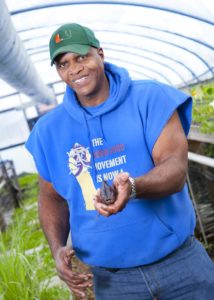 Selected by the Baltimore Bullets in the 1971 NBA draft, Allen never got any game time in the league. Instead, he would go on to become more famous as an urban farmer. The son of sharecroppers in South Carolina, he bought a derelict plant nursery, as well as a hundred-acre farm near Milwaukee and turned it into one of the most lauded urban farming projects in the US. He is the co-director of Growing Power, which runs the last functional farm within the Milwaukee city limits, and has been the subject of various books, grants, awards and documentaries.
Selected by the Baltimore Bullets in the 1971 NBA draft, Allen never got any game time in the league. Instead, he would go on to become more famous as an urban farmer. The son of sharecroppers in South Carolina, he bought a derelict plant nursery, as well as a hundred-acre farm near Milwaukee and turned it into one of the most lauded urban farming projects in the US. He is the co-director of Growing Power, which runs the last functional farm within the Milwaukee city limits, and has been the subject of various books, grants, awards and documentaries.
Wendell Berry (1934-)
Perhaps the most famous living farmer-writer, Berry advocated small agriculture for the entirety of his life, even during the 70s and 80s when his ideas found a much narrower audience. Berry believed that the health the individual, the community, and society as a whole was better sustained by small farms. He promoted these ideas in over one hundred essays. He has also published numerous works of fiction and poetry, and has received, among other accolades, the National Humanities Medal.
*
Recognizing the irony in saying so, some of these famous farmers I didn’t know about until I started doing the research. Apparently it’s not an occupation that gives way naturally to fame and riches. Certainly, someone else could make an entirely different list. I would be interested in hearing who I might have missed, and can be given suggestions in the comments below.
![]()
This article is part of The Milk House column series, published in print across four countries and two languages. It can also be found at themilkhouse.org.
This article appeared in a similar form in Progressive Dairyman.
Interested in reading about farming, including famous farmers in fiction and real life? Check out the largest list of farm books. When you can, consider supporting indie presses, for which the largest list of independent publishers could be useful.
*
Ryan Dennis is the author of the novel The Beasts They Turned Away, available internationally.
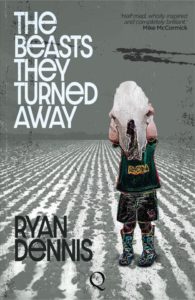 Íosac Mulgannon is a man called to stand.
Íosac Mulgannon is a man called to stand.

